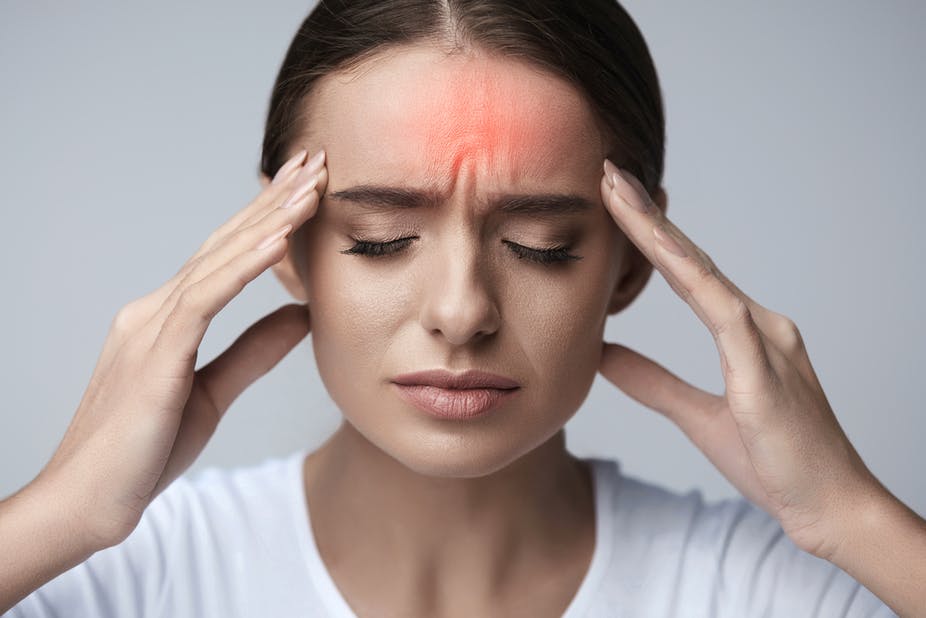What is a Headache? and Types of Headaches

Wouldn’t it be great to understand why you have a headache so that you can finally rid them for good? Well, this article will break down some basics of types of headaches and some treatments so you can prevent more headaches.
Migraines
Overview
The dreaded migraine is caused by the dilation of blood vessels in your brain, which puts pressure on your most precious organ. These headaches are usually of gradual onset and are characteristically throbbing. But as some people know, migraines can go beyond the pain and cause dizziness, blurred vision, and even slurred speech.
Treatment
Generally speaking, you should be able to ingest an NSAID with some caffeine, but for the extreme migraine, many emergency rooms give an IV cocktail of Toradol, Benadryl, and Reglan. People who suffer from chronic migraines are treated by a primary care physician who will prescribe medications from NSAIDS to calcium channel blockers and beta-blockers.
Prevention
Unfortunately, the prevention of migraines is complicated. Migraines have various triggers that include hormones, foods, bright lights, hunger, stress, and too much or too little sleep. So if you can get sufficient regular sleep, never get hungry, and don’t ever get stressed, then you might be on your way to fewer migraines.
Tension Headaches
Overview
These headaches are generally mild to moderate in severity and feel like a tight band or dullness in areas from your neck to your entire head. They are generally made worse when you bend your neck forward but generally don’t come with many other symptoms.
Treatment
The treatment for these headaches is your general NSAIDs and combinations of NSAIDs with caffeine. Chronic tension headaches may be treated by your primary with drugs from muscle relaxants all the way to tricyclic anti-depressants (TCAs).
Prevention
Whether or not you’re a chronic sufferer, you should integrate neck stretches into your day. This stretching will help your muscles relax (or “detention”) and reduce the amount or completely prevent headaches. If you want to go all out, start doing yoga, plow position will give you headaches at first, but over time, your neck will loosen up till your headaches are gone.
Sinus Headaches
Overview
If you haven’t had a sinus headache, you are the world’s luckiest person. Sinus headaches are caused by inflammation of your sinus cavities that cause a gradual onset of constant pressure in your face and head. Generally, the headache is accompanied by fatigue, a stuffy, runny nose, and increased pain when bending forward.
Treatment
When treating these headaches, you need a wide variety of medications. NSAIDs and combination NSAIDs with a decongestant are usually the first line when attempting to get rid of the headache, but your may need to see your doctor if you suspect a sinus infection. A doctor may prescribe an antibiotic with a corticosteroid if your efforts and time have not resolved the problem.
Prevention
Most prevention is limited to staying away from antigens (like pollen) that may be causing the inflammation. Exercise has also been known to help prevent these headaches, but overall there is not a ton you can do to prevent these types of headaches.
Cluster Headaches
Overview
These headaches usually sneak up on you at night, where you will have sudden onset extreme pain behind one eye that can radiate to your entire face and shoulder. These “attacks” typically last from 15 seconds to 3 hours and usually happen daily for weeks to months. These headaches generally happen at the same time or night and in a specific season for you (ex: every fall). The cluster headache mechanism is largely not understood but is associated with primary headache disorders called trigeminal autonomic cephalalgias.
Treatment
Acute treatment includes a fast-acting triptan with oxygen, but this is not guaranteed to work and prevents headaches.
Prevention
Recommendations include quitting smoking and reducing or eliminating alcohol consumption—medication options just as Verapamil and corticosteroids are prescribed but may not work. For extreme cases, a surgery that includes a nerve stimulator may be the only option.
Trending Health Topics
- ADHD
- Allergies
- Arthritis
- Bipolar Disorder
- Bunions
- Car Accidents
- Chron's Disease
- Common Cold
- COPD
- Depression
- Dry Skin
- Dry throat
- Eczema
- Fungal Infection
- GERD
- HIV/AIDS
- Hypertension
- Irritable Bowel Syndrome (IBS)
- Multiple Sclerosis
- Osteoarthritis
- Psoriasis
- Rheumatoid Arthritis
- Skin Disorders
- strep throat
- Type 2 Diabetes
- Uncategorized